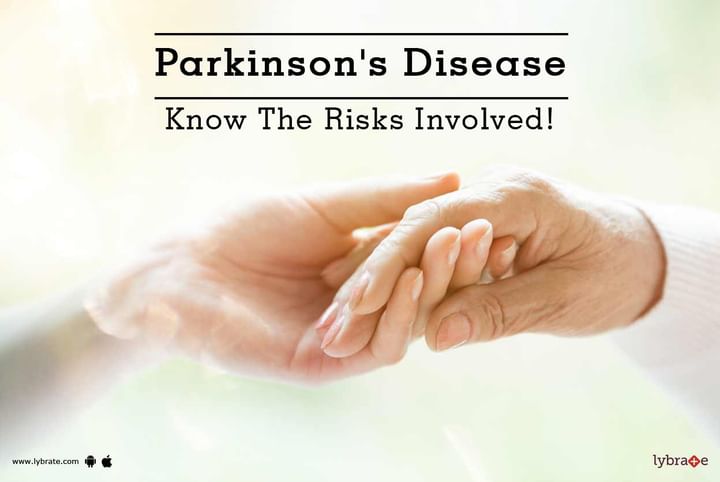Get the App
For Doctors
Login/Sign-up
Last Updated: Jan 10, 2023
BookMark
Report
Parkinson's Disease - Know The Risks Involved!
Parkinson’s disease is a disorder involving the nervous system. It can start with a mere tremor of one hand and advances to slow movement and stiffness. The face might show little no symptoms in the beginning but the speech might become slurred. With every passing day, the condition worsens. This condition has no permanent cure but the symptoms can be improved with proper medication.
What are the symptoms?
Some unmistakable symptoms include the following:
- A sudden shaking of the limb. A sudden tremor of the hand is a very common symptom of this disease.
- Stiffness of the muscles that can limit the range of motion and sharp pain.
- The posture of the body might get compromised. Often balancing problems are witnessed among many patients.
- There could be problems with speech leading to soft, slurry or quick speech. The speech in some cases can become monotonous devoid of inflexions.
- Parkinson’s disease can lead to slow movement and makes performing of simple tasks difficult.
- Patients often find writing very difficult
What are the possible causes of Parkinson’s disease?
- Specific genetic mutation can lead to Parkinson’s disease in folks who have a family history of Parkinson’s disease. Certain variations of the gene increase the risk of this disease
- Exposure to certain environmental factors or certain toxins can trigger Parkinson’s disease in an individual.
- Certain cells in the brain known as Lewy bodies can trigger Parkinson’s disease.
- A certain kind of protein cells within the brain known as alpha-synuclein can trigger the Parkinson’s disease in an individual
What are the risk factors?
- Heredity: Having an immediate family member or close relative suffering from Parkinson’s disease can increase the risk of getting this disease in an individual
- Age: Although not a prime risk factor, but an individual over the age of over 60 have an increased risk of getting this disease
- Toxins: Exposure to pesticide or certain herbicide increase the risk of Parkinson’s
- Sex: Men are more likely to get Parkinson’s disease than women
What is the medication for Parkinson’s disease?
- Carbidopa-levodopa: This is a natural chemical that gets passed to the brain and is converted to dopamine by the body. The benefits of this medication might reduce with increased symptoms.
- Carbidopa-levodopa infusion: A popular drug in this category is known as the Duopa. It is administered directly into the small intestine in the form of gel through a feeding tube.
- MAO-B inhibitors: Drugs from this group include rasagiline and selegiline. This is powerful medicine. Many patient experiences hallucination during the initial days of consuming these drugs.
- Anticholinergics: This medication is mainly used to counter tremors of the limbs in the early stage of Parkinson’s disease.



+1.svg)
